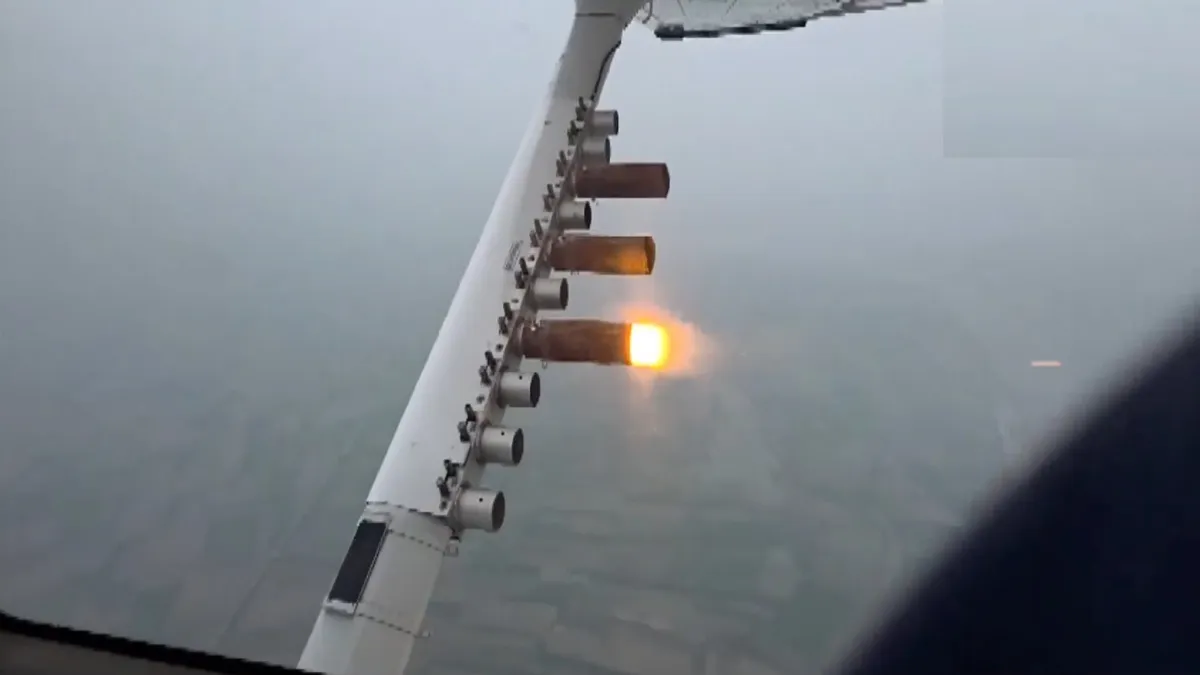- By Raju Kumar
- Wed, 29 Oct 2025 08:15 AM (IST)
- Source:JND
Delhi Cloud Seeding: Delhi witnessed cloud seeding trials on Tuesday after a gap of 53 years. The government aimed to induce artificial rain in the national capital amid surging air pollution levels. However, the weather department did not record any traces of rainfall in the city after the cloud seeding, leaving people guessing whether the trial was successful. The government said it was successful as the AQI (Air Quality Index) dropped significantly post-cloud seeding in the areas where the trial was conducted.
Why No Rain After Cloud Seeding?
IIT Kanpur Director Manindra Agarwal, while speaking to NDTV, explained why the trial failed to create rainfall. The Delhi government collaborated with the IIT Kanpur to carry out the experiment in the capital city. The moisture content in the clouds was low, which was the reason why it could not trigger rain, he added.
ALSO READ: Delhi Conducts Cloud Seeding To Curb Pollution, But No Rain Recorded; AAP Calls It Publicity Stunt
The IIT Kanpur Director said the attempts will be made again on Wednesday. He said he was hopeful for a better result.
The mixture used by the officials has only 20% silver iodide and the rest is a combination of rock salt and common salt for firing 14 flares in the sky, he said.
Agarwal said there hadn't been any rain so far; that's the reason it can be said it was not completely successful.
#WATCH | Delhi | "The second trial of cloud seeding was conducted in Delhi by IIT Kanpur through Cessna Aircraft. The aircraft entered Delhi from the direction of Meerut. Khekra, Burari, North Karol Bagh, Mayur Vihar were covered under this. 8 flares were used in cloud seeding.… pic.twitter.com/xMby0wBLJh
— ANI (@ANI) October 28, 2025
AQI Improved After Cloud Seeding: Government
Environment Minister Manjinder Singh Sirsa said the Delhi government, in collaboration with IIT-Kanpur, conducted the trials in parts of Delhi, including Burari, north Karol Bagh, Mayur Vihar, and Badli, with more such exercises planned over the next few days.
ALSO READ: Rajasthan Officer’s Wife Draws Rs 37.54 Lakh Salary Without Working A Day; How Her Husband Helped
Later, in the evening, the government in a report said that the cloud seeding trials helped in the reduction of particulate matter at locations where the exercise was carried out even as conditions were not ideal for it. The report said that two precipitation events were recorded -- Noida at 4 pm (0.1mm of rain) and Greater Noida at 4 pm (0.2 mm). "Before cloud seeding, the PM 2.5 level was 221, 230, and 229 in Mayur Vihar, Karol Bagh, and Burari, respectively, which reduced to 207, 206, and 203, respectively, after the first seeding. Similarly, PM 10 level was 207, 206, 209, which got reduced to 177, 163, 177 at Mayur Vihar, Karol Bagh, and Burari, respectively," said the report.
The government said that the moisture content predicted by the India Meteorological Department (IMD) and other agencies remained low at 10-15 per cent, which is not an ideal condition for cloud seeding. Environmentalists termed the cloud-seeding trial a short-term measure, saying it may temporarily reduce pollution but fails to address the root causes of the capital's deteriorating air quality.
AAP Mocks Cloud Seeding Exercise
The opposition AAP mocked the exercise, calling it a tactic to "steal Lord Indra's (rain god's) credit", even as the BJP hailed the move to tackle the pollution crisis. The first trial was completed by 2 pm on Tuesday and for the second trial, the flight took off from Meerut around 4 pm and completed the trial in an hour.
(With PTI inputs)

